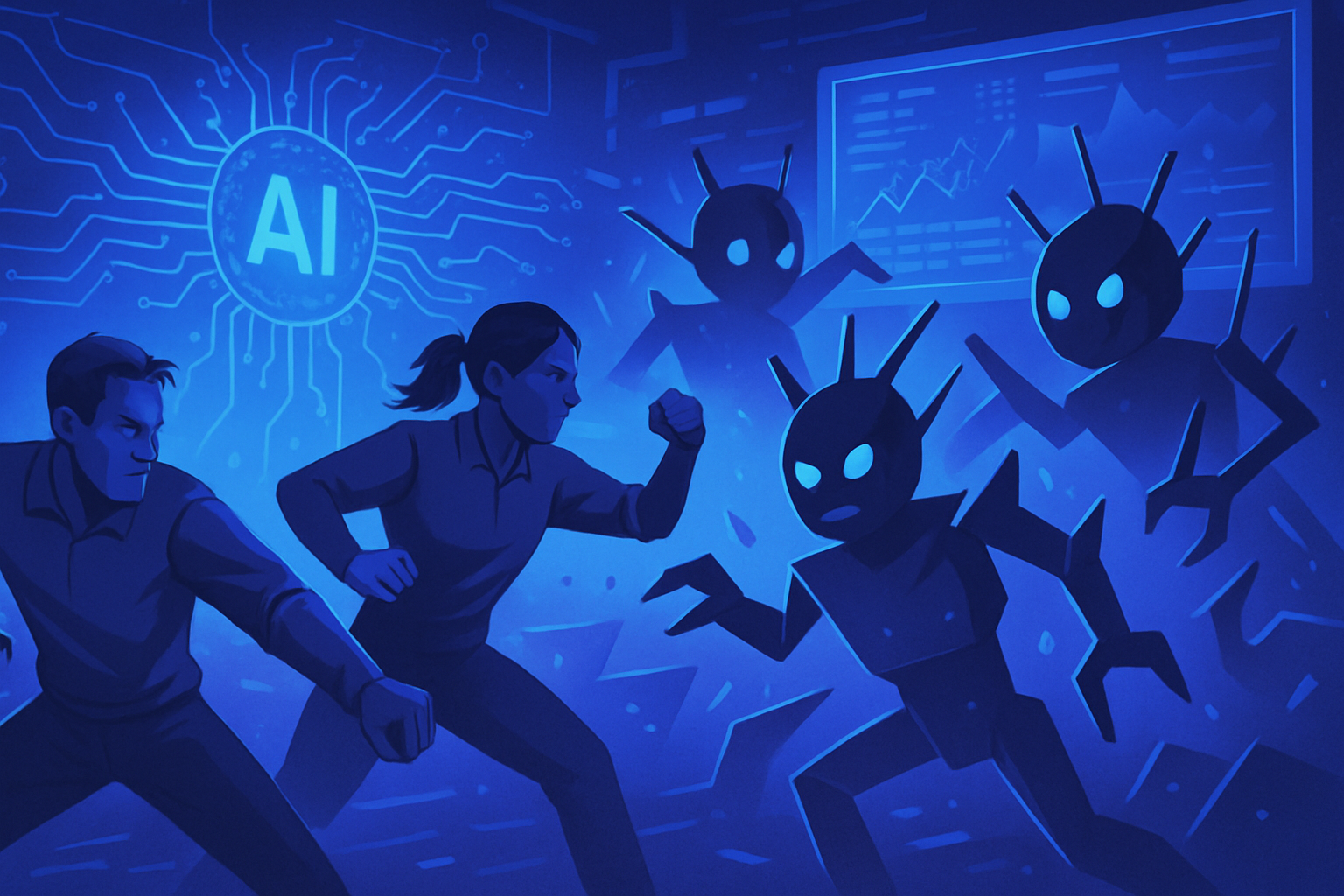The rise of bots raises important questions about the management of internet resources. Technology companies are faced with a voracious and unremunerated use of their content. *Bandwidth issues* harm the user experience, plunging sites into a financial dilemma. The challenge is immense: to reconcile technological innovation and the protection of *digital resources*. Each of these issues demands a thoughtful solution and appropriate regulation in the face of this unscrupulous exploitation.
The impact of bots on digital infrastructures
Technology companies make use of automated programs, known as bots, to scour the web for data. This phenomenon has generated considerable traffic on websites, leading to performance slowdowns. Institutions such as the Bibliothèque nationale de France (BNF) observe that this increase in traffic affects the quality of service provided to users.
Financial and technical consequences of data scraping
The infrastructures that support these digital platforms bear an increasing burden, leading to unforeseen expenses. Isabelle Nyffenegger, deputy director general of the BNF, indicates that the necessary investments to maintain performance have risen. This technical escalation forces companies to adapt their infrastructure to meet exponential demand.
The challenge of free content in the face of commercial exploitation
Wikipedia, for example, faces bandwidth demands that have increased by 50% in just a few months. The Wikimedia Foundation expresses concerns regarding the use of its content in a commercial context without adequate compensation. Access to Wikipedia resources is devoid of any reciprocity, highlighting a major issue regarding the monetization of data.
Industry reactions and anti-bot initiatives
In light of this situation, companies and organizations are starting to take steps to counter the impact of bots. iFixit, a site dedicated to repair tutorials, has expressed frustration about the excessive use of its servers by bots. The manager, Kyle Wiens, calls on the community to address the necessity of regulating this abusive use.
The implications for the digital economic model
The fight against bots raises questions about the future of digital economic models, often based on the free availability of content. If the situation persists, companies may consider radical changes in their monetization strategy, making content less accessible. The legitimacy of the use of raw data thus becomes a major issue for the balance between innovation and respect for creators’ rights.
Future perspectives
Future solutions could involve technologies capable of distinguishing human traffic from bots. Better regulation of access to protect sensitive content could also be considered. Discussions about the ethics of data use remain crucial to preserve a fair and functional Internet.
Frequently asked questions about the fight against bots and artificial intelligence
What is a bot and what is its role on the Internet?
A bot is an automated program that performs repetitive tasks on the Internet, including data scraping. These tools can be used to collect information, but they can also cause slowdowns on websites by overloading servers.
How do tech companies use bots to train their artificial intelligences?
Tech companies use bots to browse and collect vast amounts of data available online. This information feeds the learning models of artificial intelligences, allowing them to improve their performance in various applications.
What are the impacts of bots on website infrastructures?
Bots can significantly increase the traffic on a site, leading to slowdowns and a degradation of the user experience. This can also generate additional costs for companies to improve their infrastructures to handle this demand.
What measures can organizations take to limit the impact of bots?
Organizations can implement bot detection systems, use CAPTCHAs to filter human traffic from robots, and restrict access to certain parts of their sites based on detected usage.
Why are free online publications particularly targeted by bots?
Sites offering free content, such as encyclopedias or online libraries, are ideal targets for bots because their content can be easily scraped without payment, allowing artificial intelligence companies to enrich their databases.
What challenges do cultural institutions face in light of bot scraping?
Institutions like national libraries face pressure to provide quality service to their users while managing abnormal traffic caused by bots, which requires investments in infrastructure and careful management of resources.
Can bots harm online content companies?
Yes, bots can harm companies that provide online content by siphoning their data without compensation. This increases their operating costs and can harm their advertising revenue, which depends on authentic traffic.
How can users protect their personal data from scraping by bots?
Users can enhance their security by limiting the amount of information shared online and using privacy settings on platforms. Using anti-scraping tools can also be beneficial.






